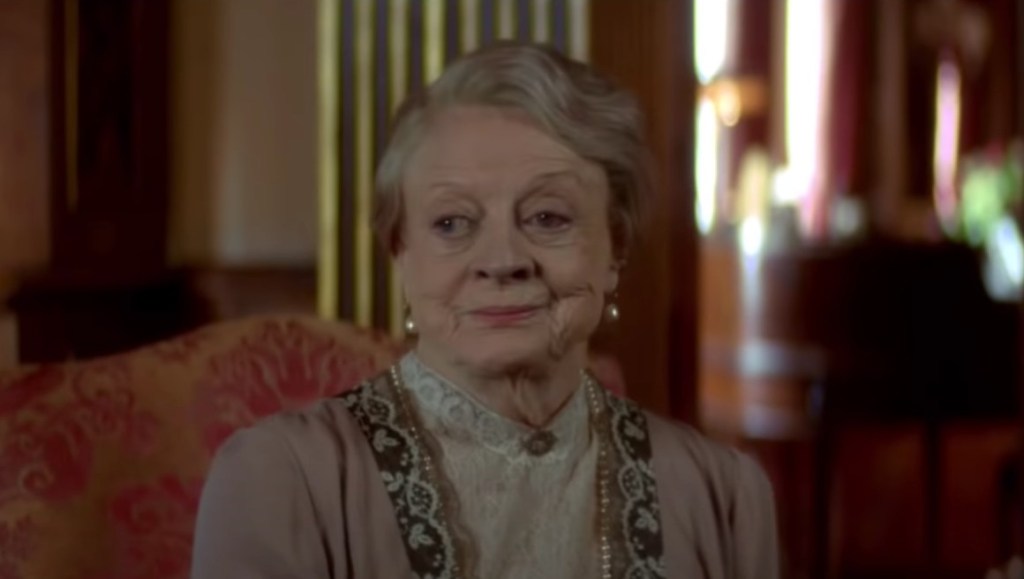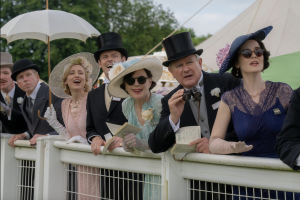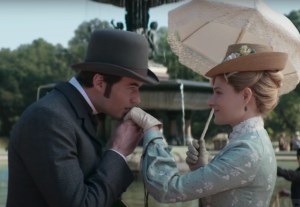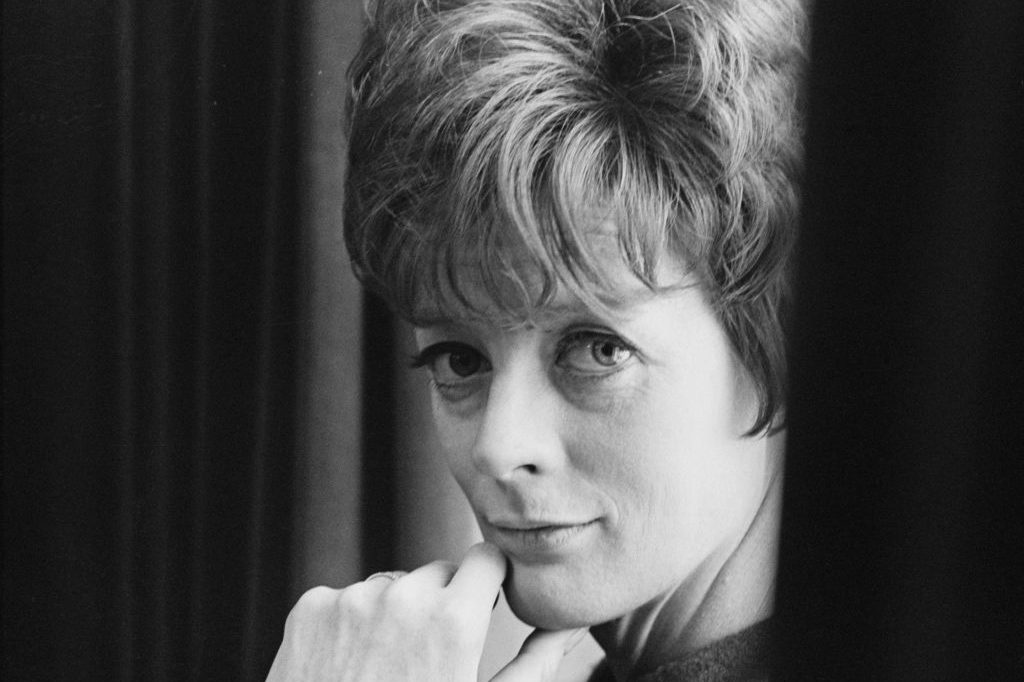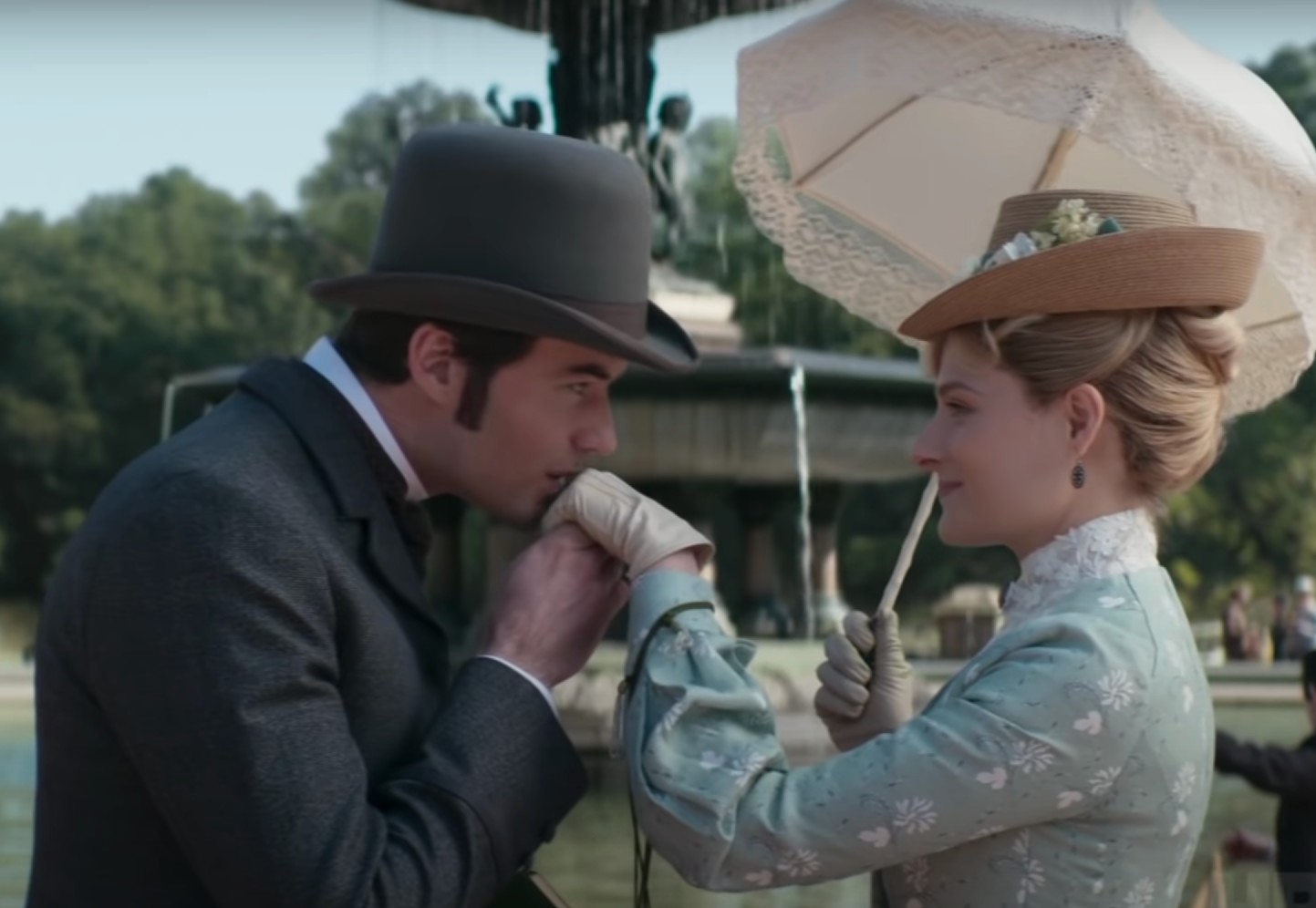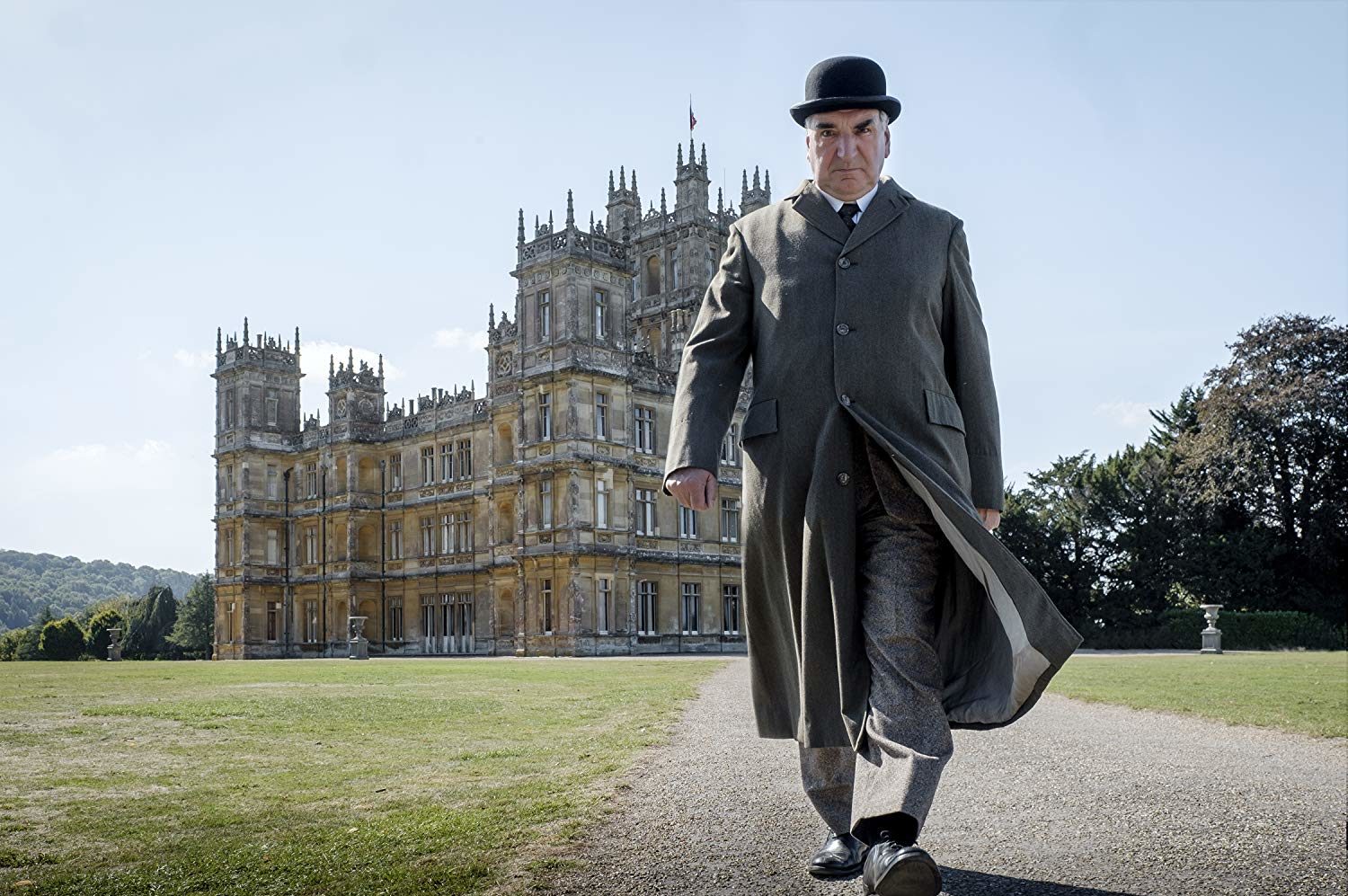I love a British costume drama. My idea of a perfect Sunday afternoon film is something picturesque, with Anthony Hopkins, Emma Thompson, Helena Bonham Carter and others looking alternately repressed and joyful, even as they exchange clenched platitudes about weather, money and train times. “The trains mean sex,” someone who knows about these things told me once. “And so does money.” “But what about the weather?” I asked. “Surely storms mean passion and sunshine means sex?” The expert looked at me as if I was mad. “The weather means the weather. Don’t forget, these things are filmed in Britain.”
Alas, the glory days of the genre have now come to an end with the passing of Ismail Merchant, half of Merchant Ivory, uber-producer of tasteful period pieces, and, more perniciously, with the advent of Downton Abbey, created and written by (Lord) Julian Fellowes. After an undistinguished career as a character actor, Fellowes achieved prominence and an Oscar for his screenplay of Robert Altman’s Gosford Park. Never mind that it was only the third best of the nominated original screenplays in 2001 (The Royal Tenenbaums and Memento were undoubtedly superior, and one could probably make a case for Amélie if one felt generous). It sent Fellowes’ career into overdrive, and he, a notably charming and likable fellow, made a fortune from script-doctoring otherwise undistinguished costume dramas.
And then, a decade after Gosford Park, came Downton Abbey.
I bow to nobody in my continued appreciation for the first series of the show. It’s witty, caustic and sharp, boasts an excellent cast, has a storyline that surprises viewers in a good, rather than absurd, way, and deservedly attracted a mass following on both sides of the Atlantic. Unfortunately, the rot set in shortly thereafter. Even as the by now inexplicably popular show continued its steady plod through the lives and loves of the Crawley family, all overseen by the apparently ageless figure of Lady Grantham, played by Maggie Smith as if perpetually on the verge of a sneezing fit, the Fellowes-penned screenplays gave the persistent impression of having been written on the back of an envelope en route to whatever stately home had been hired for that week’s filming.
Space and patience forbid me from listing all of the various structural problems. There were the subplots that went nowhere, characters who appeared and disappeared without warning (presumably the actors’ availability was a constant surprise to the producers, but not to the hardy Fellowes, who simply wrote them in and out as convenient) and the inexplicable storylines and motivations. But I reserve particular fondness for the moment in which Jim Carter’s butler Carson, required to offer a judgment on a character’s homosexuality, delivers the immortal line “I cannot help it, Mrs. Hughes. I am what I am.” To say nothing of the character of the murderous, limping valet Bates, played by Brendan Coyle with all the light charm and joyful élan of Jeffrey Dahmer.
For the first couple of seasons, I shivered whenever he appeared, and admired Fellowes for making an obviously wrong ‘un seem almost human, especially in his romantic subplot with the ladies’ maid Anna. And then, finally, it dawned on me. Bates was not supposed to be the overall antagonist, but a wronged and noble soul. The deaths of those around him were explained away through tortuous, bizarre exposition. (“Not Bates’s fault, m’lord.” “But the plot makes no sense if he didn’t do it.” “Be quiet and stop being rational!”) The fact that this was not the worst aspect of the show says a lot about its haphazard, devil-may-care approach to plot continuity and believability.
Yet its enormous popularity led to six series and then a dire film in 2019, which was hugely profitable (nearly $200 million worldwide gross on a budget of no more than a tenth of that). So we are now threatened with a new installment in the creepy Crawley saga, in which the title Downton Abbey: A New Era has its own ironic humor. The old cast are present and correct (although the Maggie Smith character was revealed to be ill in the previous film, so there’ll be a deathbed scene to rival Laurence Olivier’s in Brideshead Revisited) and a few new actors have been blackmailed by their agents into joining the fun. The trailer reveals that Lady Grantham has been left a villa in the South of France by a former admirer, so the cast will decamp there. Nice work if you can get it, and the cast all look as if they’re having fun: considerably more, in fact, than the audience will. It looks truly, catastrophically, painfully dire. And it shall, inevitably, gross a fortune.
I can only hope that another Covid outbreak postpones its release indefinitely, but like death, taxes and Meghan Markle memoirs, we all know that it’s coming at some point. And I, for one, am quaking in my Oxfords at the prospect.



